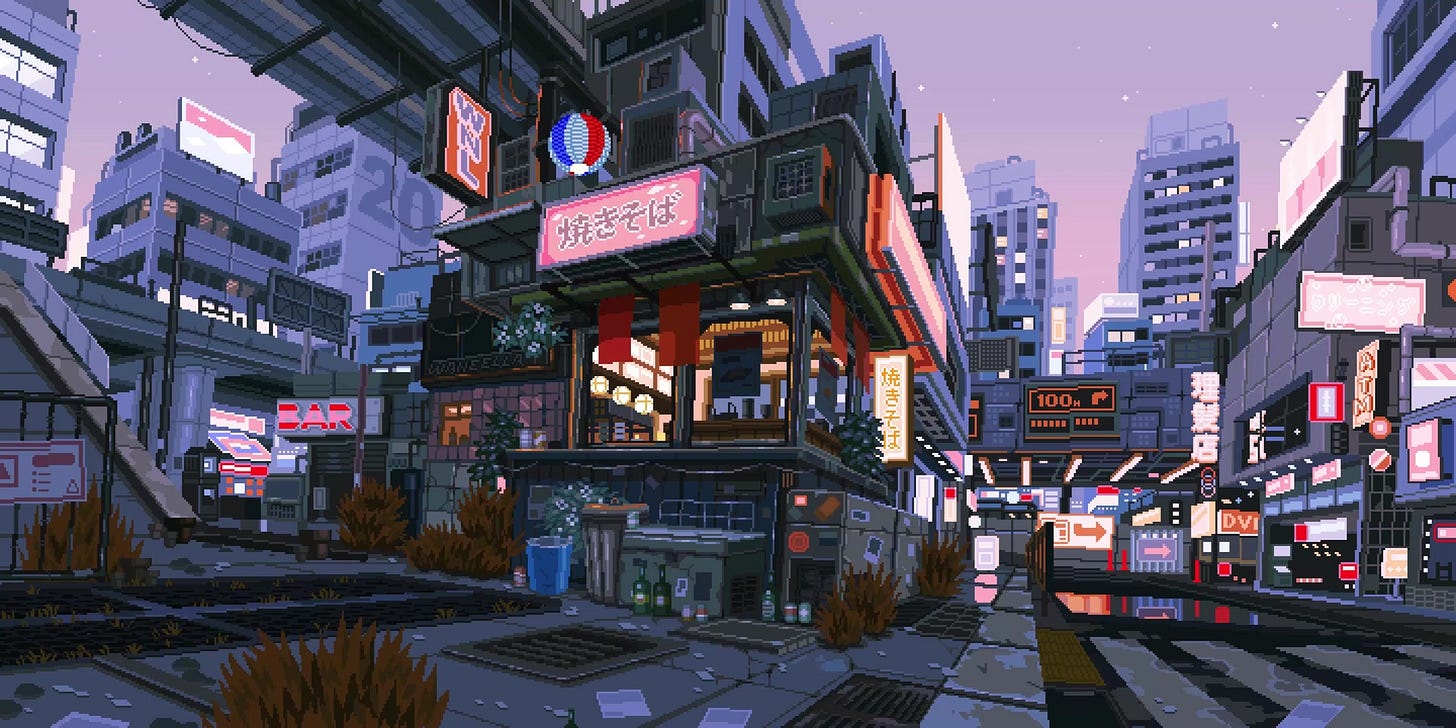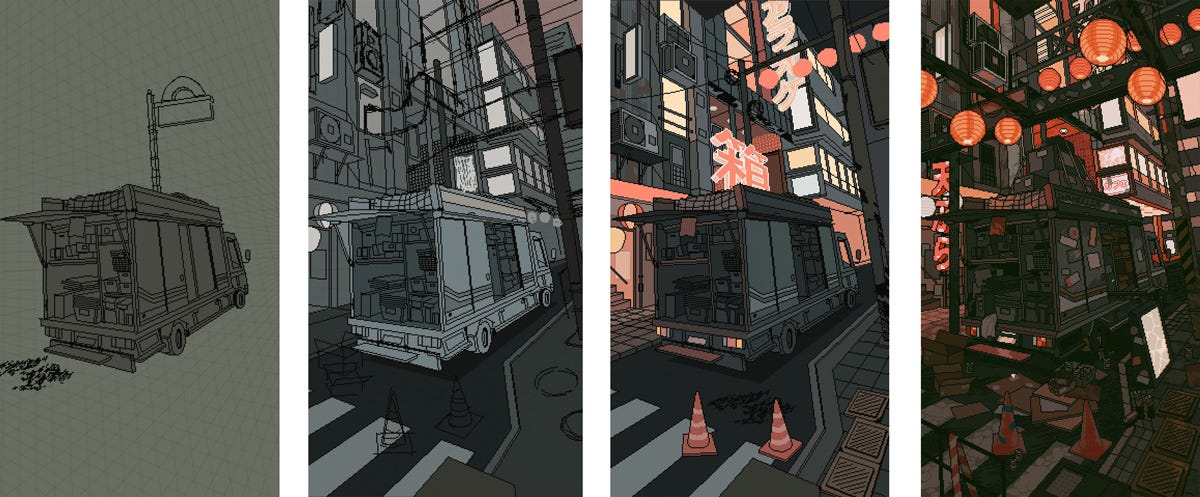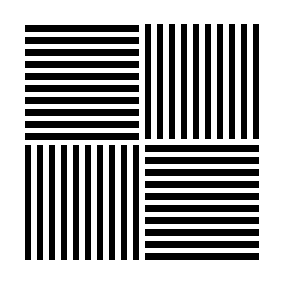PIXEL ART
Waneella’s Fantasy Tokyo Street Scenes

As soon as I saw samples of Waneella’s animated pixel art depicting Tokyo street scenes, I became a Patreon subscriber.
Waneella (aka Valeriya Sanchillo) was born in 1993 and lives in Moscow. On her Patreon page, she has timelapse videos that show her process. She draws basic shapes in Photoshop, then adds details, making many changes along the way.

Waneella’s work brings back the magical feeling Carla and I got on our first night in Tokyo when we walked down a lantern-lit alleyway of bars and restaurants in Ikebukuro. I couldn’t believe such a dreamlike place existed. It was quiet and energetic, clean and gritty, modern and ancient, and the attention to detail was evident at every scale. I think Waneella must feel the same way about Tokyo that I do.
To see more of Waneella’s work, visit her Tumblr, Twitter, and YouTube accounts.
OPTICAL ILLUSIONS
Change your brain with the McCullough Effect

Look at the image above. The first time I saw it, in 2006, it appeared in black and white, as it probably does for you. I can’t see it in black and white any longer — the horizontal stripes are tinged with green, and the vertical strips are tinged with magenta. Warning: the image in the following link will affect your vision for months, if not years. Skip it if you don’t think that sounds like a good idea. That’s because I looked at this image, which seems to have changed my brain permanently.
The phenomenon is called the McCollough Effect, named after psychologist Celeste McCollough, who discovered it in 1965. The strange thing about the effect is that it’s usually stronger the next day (you don’t need to look at the colored images again). For some people, the effect remains for months. For me, it’s lasted for years. I assume it’s permanent. It doesn't seem to have affected my vision negatively, though.
What is the mechanism behind the McCollough Effect? Hypotheses abound. Most researchers seem to agree it has something to do with neural adaptation instead of being a visual aftereffect (like rod and cone fatigue), but no one knows for sure.
If you aren’t a paying subscriber, you’re seeing only part of The Magnet. Here’s this week’s subscriber-only issue, which looks at the incredible SHA-256 hash algorithm, solving problems by walking, an 1857 quote that has never appeared online before, and an updated recipe for better almond bread.



I'm a chemist, not a neuroscientist, but I'm pretty sure that the McCullough Effect is just a glitch in the code for the sim we live in. It probably doesn't go away until the IT person running the server gets around to applying the patch.